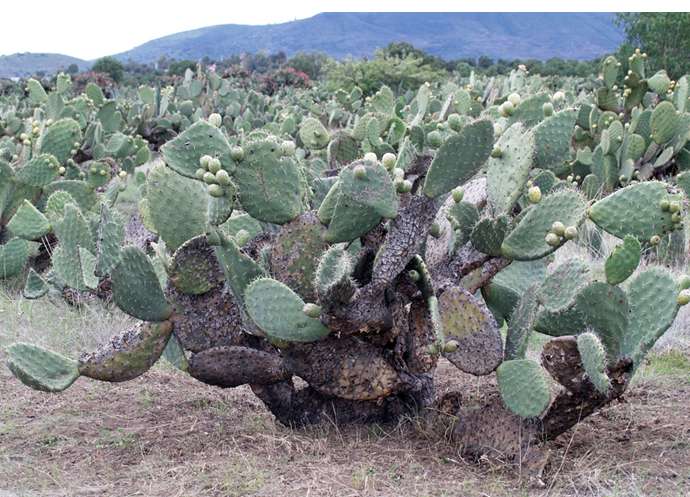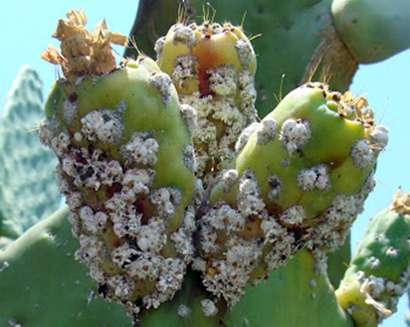Mexican researchers observe natural insect control without pesticides

Scale insects known as cochineals are major pests of prickly pear in Mexico, and pesticides are often used to control them. However, one prickly pear farmer has been controlling them without the use of insecticides since the year 2000.
The farmer tipped off a team of scientists from the Universidad Autónoma Chapingo, and he told them that other insects were feeding on the scale insects. The researchers decided to investigate, and they found that the farmer was right. During the entirety of the research, the abundance of scale insects never reached pest status. Furthermore, when populations of scale insects increased, populations of predators increased at the same time, therefore regulating the growth of the scale insect populations. Their observations are described in an article in Environmental Entomology.
The farmer originally thought that ants were controlling the cochineals, but it turned out to be other insects. Six known predators of cochineals were found on the plantation, including different species of beetles, moths, lacewings, and flies—but no ants.
This study suggests that natural control, also known as autonomous control, may offer an alternative to chemical insecticides.
However, Dr. J. A. Cruz-Rodríguez, one of the co-authors, warns that this method of control isn't necessarily one that can be applied at will to other plantations or crops.

"Autonomous biological pest control cannot be considered a technology that is applied or not depending on the level of the pest," he said. "It is a process that is established and maintained if the agroecosystem retains structural complexity and diversity of species."
In other words, a lot of conditions must be met in order for autonomous control to be viable.
"Autonomous control requires an ecological infrastructure that supports a network of interactions that limit the explosive growth of herbivores," Cruz-Rodríguez said. "Intercropping, agroforestry systems, non-use of biocidal products (or its more rational application)—they all contribute to the formation of the biotic network that prevents the development of pests."
This study shows that if the conditions are right, farmers can potentially use natural predators for autonomous control.
More information: J. A. Cruz-Rodríguez et al, Autonomous Biological Control of(Hemiptera: Dactyliiopidae) in a Prickly Pear Plantation With Ecological Management, Environmental Entomology (2016). DOI: 10.1093/ee/nvw023
Provided by Entomological Society of America
















